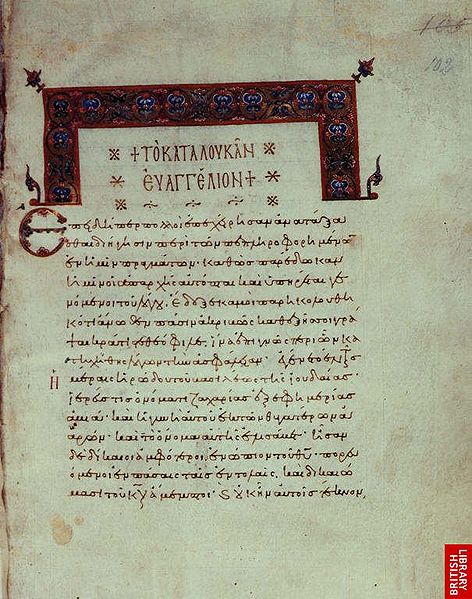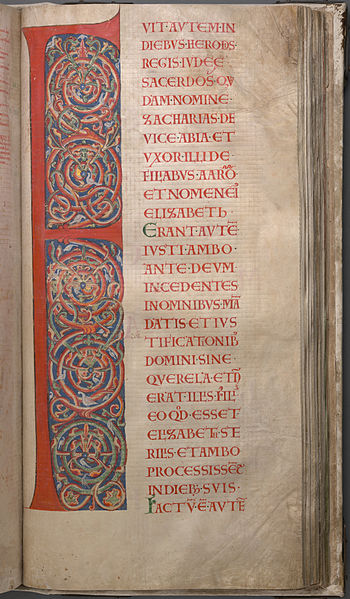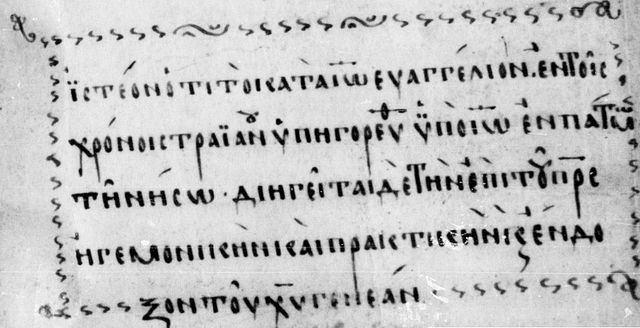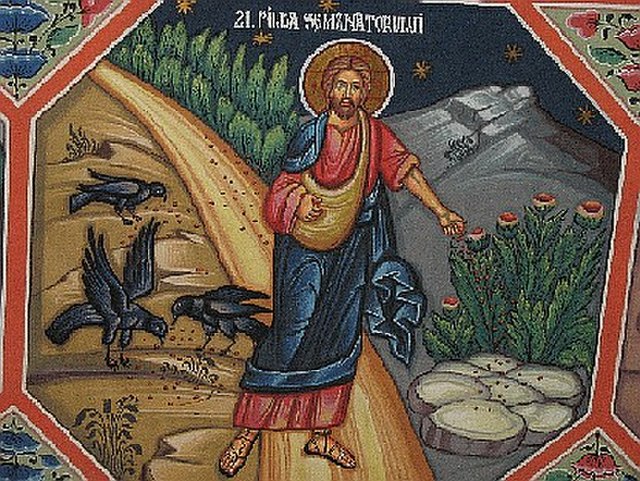Luke 1 is the first chapter of the Gospel of Luke in the New Testament of the Christian Bible. With 80 verses, it is one of the longest chapters in the New Testament. This chapter describes the birth of John the Baptist and the events leading up to the birth of Jesus. Two canticles, the canticle of Mary and the canticle of Zechariah, are both contained within this chapter. The unnamed author of Luke names its recipient, Theophilus, who is most likely a real person, but the term could simply mean a fellow believer, since theo philus is Greek for God lover. Early Christian tradition uniformly affirms that Luke composed this Gospel as well as the Acts of the Apostles, the companion volume to Luke, which is addressed to Theophilus in the same way. The title "The Gospel of Luke", found in many Bibles and some manuscripts, was added later with no indication that it was originally part of the text.

The beginning of the Gospel of Luke (chapter 1:1-7a), folio 102 in Minuscule 481, made in 10th century.
Luke 1:1-7 in Codex Nitriensis (c. 550), Tischendorf's edition.
The Latin text of Luke 1:5–8 in Codex Gigas (13th century).
The Annunciation, by El Greco (completed 1575)
The Gospel of Luke tells of the origins, birth, ministry, death, resurrection, and ascension of Jesus Christ. Together with the Acts of the Apostles, it makes up a two-volume work which scholars call Luke–Acts, accounting for 27.5% of the New Testament. The combined work divides the history of first-century Christianity into three stages, with the gospel making up the first two of these – the life of Jesus the Messiah from his birth to the beginning of his mission in the meeting with John the Baptist, followed by his ministry with events such as the Sermon on the Plain and its Beatitudes, and his Passion, death, and resurrection.
Luke 13:29–35; 14:1–10 on Papyrus 45 (folio 15; c. 250 AD)
Papyrus 45, a 3rd-century AD Greek papyrus of the Gospel of Luke
Subscriptio to the Gospel of Luke in Codex Macedoniensis 034 (Gregory-Aland), 9th century
Parable of the Sower (Biserica Ortodoxă din Deal, Cluj-Napoca), Romania)








